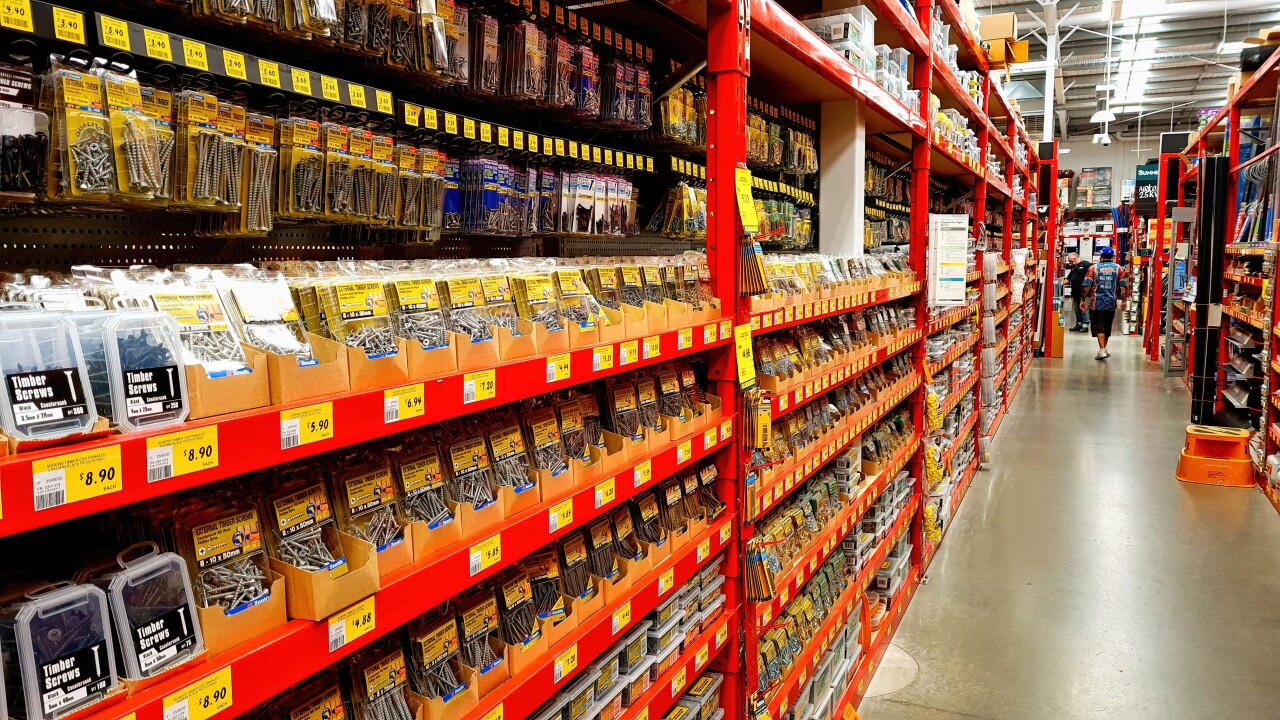The 50% tariff on steel and aluminum products, including derivatives, placed on most countries is hitting some smaller items with big impacts — screws, nails and bolts.
Prices for core goods are up nearly 2%, according to Yale's Budget Lab — a strong indication of tariffs' impacts on consumer prices. With appliances and electronics particularly elevated, the steel and aluminum tariffs are impacting costs across multiple industries.
Unless you're an avid DIY-er or in the construction industry, you probably don't give them a lot of thought — fasteners. But for distributors like Robert Lehmann, who specializes in marine fasteners, it's been a rocky 6 months.
"My costs have probably increased between 30 and 50% depending on the item. And that is the vast majority of the margin already," Lehmann said.
RELATED STORY | What happens to revenue brought in by Trump's tariffs?
The Rhode Island-based company ships its specialized fasteners all over the U.S. He hasn't had to increase prices for his customers yet, but Lehmann is seeing impacts.
"It has slowed down parts of the economy that you wouldn't even think it would touch. You know a lot of companies are pushing back large projects," Lehmann said.
The large projects Lehmann sees being postponed are in construction and electrical. In the consumer world, higher prices on metal fasteners are one of the small details making up the larger picture.
"Steel and aluminum, of course, are used as inputs. And a lot of things like auto manufacturing, aircraft manufacturing, construction, all of those industries will see their input costs go up," William Hauk said.
Fasteners represent a significant part of total material costs for cars, household appliances and many home improvement goods.
The U.S.'s main source for imported fasteners is Taiwan at 33%. Taiwan has built a specialized industry to create high quality fasteners — it's one of the reasons Lehmann sources some products from there.
"A lot of companies have done this, and a lot of importers have done this because ultimately they see foreign producers as being cheaper or higher quality or some combination of the two," Hauk said.
Before the tariffs implemented this year, Lehmann tried to source more materials from the U.S.
"Unfortunately, the manufacturers in the United States don't always have the equipment. They don't have the expertise. And even when they do, the raw materials are tariffed as well," Lehmann said.
The tariffs are significant, but for distributors the price isn't the biggest problem. The uncertainty is a huge snag — unable to budget for possible increases at the supply level means project estimates may not match real costs.
This story was reported on-air by a journalist and has been converted to this platform with the assistance of AI. Our editorial team verifies all reporting on all platforms for fairness and accuracy.




